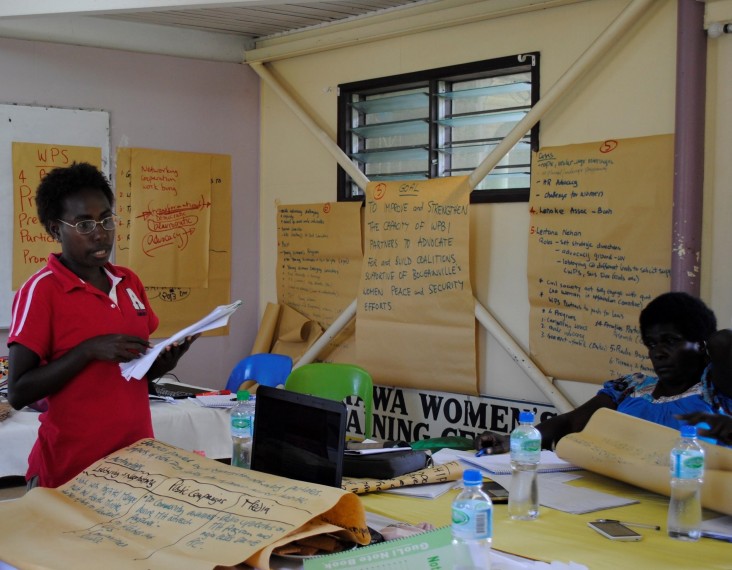
August 2016—Angeline Kobuko, a young woman from the Bana district of Bougainville, Papua New Guinea, is the youth president of her community. A strong leader, she represents the voice of the youth at district meetings on pressing issues, such as violence prevention.
Kobuko is a survivor of violence herself. She grew up in a turbulent home where arguments between her parents often turned physical. Over time, Kobuko became fearful of interacting with others, and she avoided her peers.
But Kobuko wasn’t alone.
Families across all regions of Bougainville were broken from a decade-long civil war that began in 1988. Described as the largest conflict in Oceania since the end of World War II, more than half of the population fled their homes during the war, and up to 20,000 lost their lives.
Trauma, domestic abuse and substance abuse disrupted the fabric of society, blocking reconciliation, rehabilitation and development. Nonetheless, local leaders pressed on to restore normalcy. Safe houses, learning centers and other grassroots organizations began to sprout up. Most of them were led by women.
Recognizing the unique perspectives and abilities that women contribute to development, USAID launched the two-year Women’s Peace Building Initiative in 2014. The project, implemented by Counterpart International, awarded grants to women-led organizations to help both ex-combatants and civilians, particularly women and youth, overcome the trauma caused by the conflict. These organizations promote violence awareness, work to prevent domestic and sexual abuse, provide mental health counseling, and empower women in business, government and civil society.
One grantee, the Bougainville Women’s Federation, targeted much of its assistance in Bana, Kobuko’s hometown, because it was one of the most severely conflict-affected regions in Bougainville. Here, the federation has counseled families and trained community members about leadership, especially for women and youth.
In March 2015, Kobuko and 30 other youth from Bana participated in a workshop to help them become leaders and peace advocates. In a safe space where they could speak openly about the violence for the first time, Kobuko and her peers stood up and talked about their own childhood experiences.
“This made me see how violence affects us all in different ways, and I realized that none of what I experienced was my fault,” said Kobuko.
The youth also learned how to recognize and change unhealthy attitudes and behaviors that stem from violence, a skill they can use to help other community members who have dealt with similar experiences.
Through the Bougainville Women’s Federation and other civil society organizations under the Women’s Peace Building Initiative, USAID improved mental health services in 15 rural clinics across Bougainville and provided trauma counseling to more than 1,800 individuals. The USAID-funded organizations have deepened public knowledge of mental health and trauma counseling services and commitment to addressing post-conflict issues. Today they continue to promote women’s participation in politics and conflict mitigation.
“We can now fuel positive change and help other people,” says Kobuko.
By providing young people like Kobuko with the opportunity to help themselves and those around them, USAID is committed to promoting peace throughout the region.
LINKS
Follow on Facebook







Comment
Make a general inquiry or suggest an improvement.